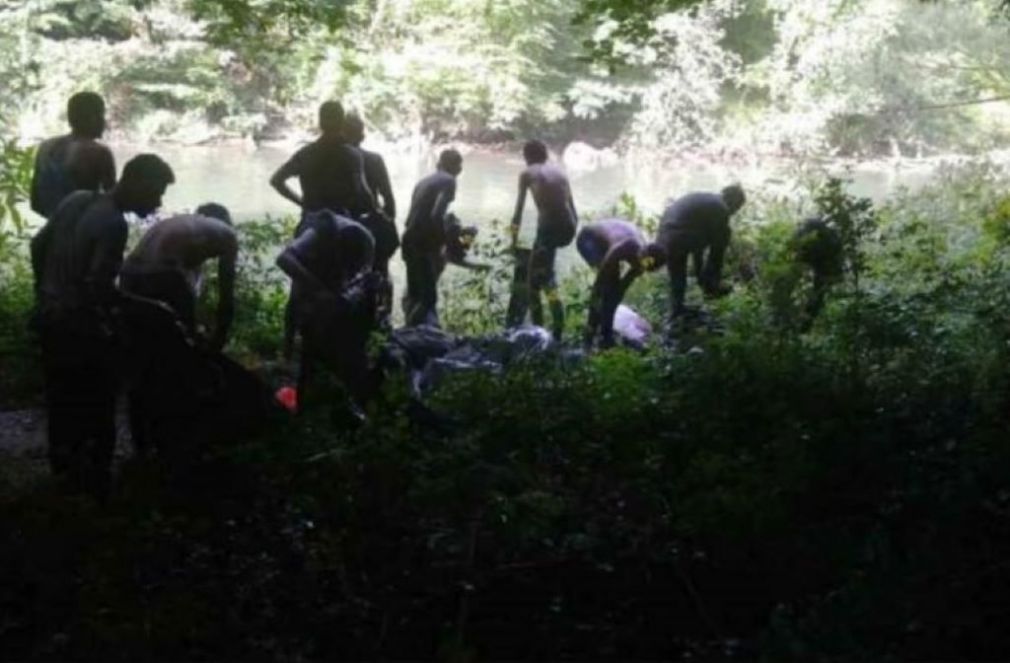Source: Moja Dolenjska
By the end of October, police had dealt with 13,179 illegal border crossings, and by Monday, November 9, another 191 migrants had been arrested, a total of 13,370. 9287 people were returned to Croatia. In 191 cases, 272 smugglers were arrested, who smuggled 1992 migrants. 215 migrant smugglers were remanded in custody.
Among the 272 smugglers arrested this year, 236 were foreigners and 36 Slovenian citizens. The Ministry of the Interior, headed by Aleš Hojs, informs the government on a weekly basis about the number of migrants and smugglers and related issues, which then publishes this information in its regular press releases after the government sessions. The mainstream media does not pay much attention to this.
The report of the Police shows that the most illegal crossings are in the area of the police administrations (PU) Koper, Novo mesto and Ljubljana (about a third of all in the country). The number of border crossings shows that illegal border crossings have increased this year mainly in the area of the Ljubljana Police Department or through the Kočevje-Ribnik area, which belongs to the Ljubljana administration.
Most migrants come from Pakistan, Afghanistan and Morocco
Citizens of Pakistan, Afghanistan and Morocco were most frequently caught. These represent as much as two-thirds of all illegal migrants. It is also evident that the number of migrants has slightly decreased this year. One of the reasons for this is the epidemic of the new coronavirus and the restrictive measures taken. The other reason is that Algerian citizens have diverted to other migrant routes, as the route across the Western Balkans is no longer as appropriate for them as before.
Migrant routes in the Balkans have not been stopped, and migrants are also accumulating en masse in Bosnia and Herzegovina (BiH). For the first time ever, a large number of intentions to apply for asylum in BiH have been reported from this country. This year, about 14,000 migrants have expressed their intention (source). Of course, this does not mean that they want to stay in BiH, but they want to somehow formalize their temporary stay in this country until they are allowed to move on. BiH has never reported on so many intentions to apply for asylum.
This is also not the final number of migrants in BiH. The number of those present is no longer reported, and so far it has been the case that, in addition to the official data on the number, at least once as many were unreported and in hiding. In Slovenia, 3,535 migrants (20 percent or a fifth less than last year at that time) intended to apply for asylum by the end of October, most of them citizens of Morocco. This year, 1,292 foreign nationals were returned to Slovenia by foreign security authorities, mainly from Austria and Italy.
At least 14,000 migrants in BiH are waiting to proceed to the West
This year, there are slightly fewer foreigners who have crossed the state border illegally. The intention to apply for asylum was expressed by 20 percent fewer detainees. This year, the police returned a strong majority of all arrested migrants to foreign security authorities, especially to Croatia. At the same time, there are at least 14,000 migrants in BiH are waiting to proceed with their move. However, following the lifting of the measures implemented to prevent the spread of the new coronavirus, an increased number of illegal crossings is expected again, just as it happened in the spring.
For the second time, the government sent a proposal to the National Assembly to grant temporary greater powers to Slovenian soldiers on the southern state border. The competent committees have not yet decided on the second proposal, for the first time they rejected it in LMŠ, SD, Levica and SAB. With the current second proposal, the SD party was the first to react and it announced that they would vote against greater powers of soldiers along the border. Their response is expected, as the party, led by chairwoman Tanja Fajon, is a sworn advocate for migrants. Some time ago, they even protested in Ljubljana for their greater rights, as the cover photo shows. The police is doing well, but it is overwhelmed. Minister Hojs explained that Slovenia has 5,700 police officers, of which 1,500 are at the southern border.
